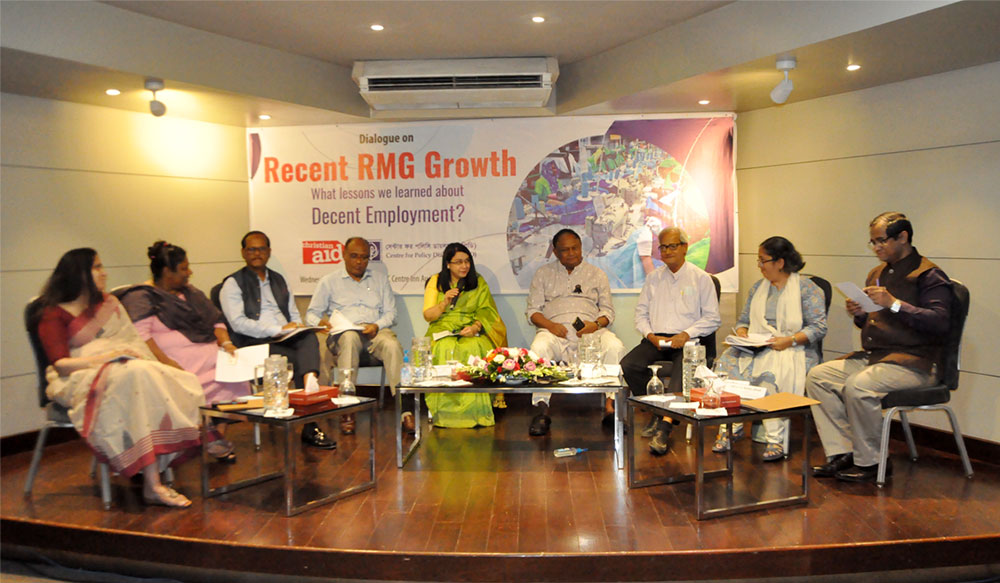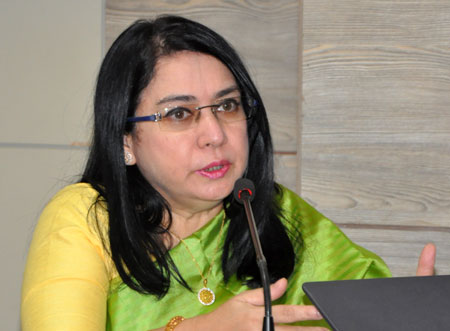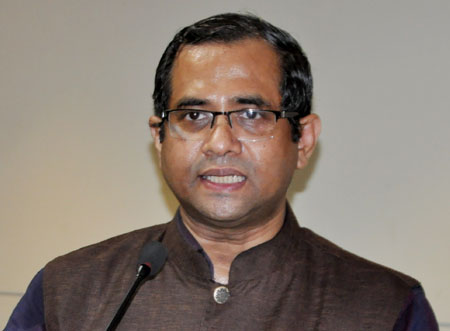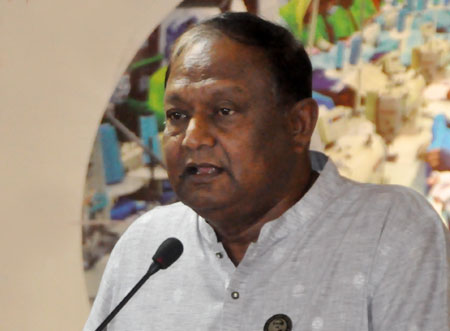
Since September 2021, the Bangladeshi RMG industry has been experiencing robust growth. The numerous protests that the distressed workers organised indicate that this growth affected the practice of selected UNGPs at the RMG factory level and has reduced the quality of decent employment. The source of the anguish of these workers is excess work pressure, increased working hours, forced labour, workplace harassment, and increased cost of living compared to offered wages. The businesses and the government should rectify these issues to ensure that RMG workers have decent employment.
These observations emerged in a dialogue titled ‘Recent RMG Growth: What lessons we learnt about Decent Employment?’ jointly organised by the Centre for Policy Dialogue (CPD) and Christian Aid on Wednesday, 31 August 2022, at Brac Centre Inn, Dhaka.

Dr Fahmida Khatun, Executive Director of CPD, chaired the session and said that the RMG sector’s growth is vital for export and employment for the citizens, especially women. The businesses must comply with human and labour rights to sustain healthy growth in the RMG industry.
Nuzhat Jabin, Programme Manager, Economic Justice, Christian Aid Bangladesh, gave introductory remarks and said, “Although RMG is a lucrative industry, we did not take adequate measures to ensure decent employment for workers.” Additionally, she referred to the UNGP framework and its significance in the ongoing expansion of the RMG sector’s exports.

In his keynote presentation, Dr Khondaker Golam Moazzem, Research Director of CPD, discussed the study on “Recent Export Growth and Decent Employment in RMG Industry: A UNGPs Perspective,” which was conducted collaboratively by CPD in partnership with Christian-Aid. The study’s objective was to examine the impact and implications of the rise in export on employment and labour rights. A sample survey and Key Informant Interviews were conducted to assess the compliance of UNGPs in RMG factories under this study.
The study found that the RMG growth has created a high demand for additional workers, aggravated by their disappearance during the Pandemic. Despite the high demand for RMG workers, there has been a significant release of workers of both genders. Many are resigning of their own volition as well. As a result, the businesses have resorted to new subcontracting factories, and the brands or the government barely check these for compliance.
The UNGPs encourage businesses to conduct regular assessments on the impact of their operations on Business Human Rights (BHR). The survey shows that medium and small-sized factories were poor in the BHR assessment.
There has not been much improvement in the payment of wages and overtime benefits, and factory owners delayed their payments to the workers during this high growth period. Although Mobile Financial Service (MFS) is an easy way to disburse workers’ monthly wages, employers did not use it, apprehending the fear of disclosure and transparency.
The lack of additional workers has increased the work pressure and working hours. The factories mainly that work as sub-contractors are recruiting child and juvenile workers to reduce worker discrepancies. The factories also allegedly imposed forced labour on the workers. Although factories have established child-care facilities, there is no desire among the workers to leverage this. Despite having committees in factories like WPCs and WSCs, their ineffective operation is still a significant problem.
To improve the financial condition of the workers, the factories should pay wages timely through digital payment, the government should consider revising the minimum wage, and the businesses should increase the market price of exported products.
For long-term improvement in decent employment in the RMG sector, the workers and employers should clearly understand and know UNGPs. The government should include business human rights concepts in academic books. The factories should have active worker-related committees, and businesses should diversify their products.

Mr Tipu Munshi, MP, Hon’ble Minister for Commerce, Government of Bangladesh, joined the dialogue as Chief Guest. He said, “Establishing trade and labour unions is undoubtedly necessary to uphold workers’ rights, but it’s equally crucial to select educated union leaders who can foster open dialogue between companies and employees.”
The Special Guest, Mr Khaled Mamun Chowdhury NDC, Director General, Department of Labour, Ministry of Labour and Employment, Government of Bangladesh, said, “There are inconsistencies in the agency’s actions owing to the current workforce crisis.”
“The number of male and female workers is decreasing in the RMG industries since we are adopting automation to satisfy Global Standards,” said Guest of Honour, Mr Md Shahidullah Azim, Vice President, BGMEA.
Commenting on decent employment and the vaccination status of the RMG workers, Guest of Honour, Mr Mohammad Hatem, Executive President, BKMEA, said, “We are vaccinating as many workers as possible, and we aspire to give the booster dose to most of them soon.” He also pointed out that the BKMEA always encourages Freedom of Association in the factories, but the workers seem least interested in forming them.
Advocate Montu Ghosh, President, Garments Workers’ Trade Union Centre, Guest of Honour, said that workers’ lack of knowledge of trade unions is the cause of the strikes they organise. He recommended that the government should form a minimum wage board and increase the wage commission, especially during this phase of RMG export growth.
“Although the RMG sector is our pride, we are not taking any measures to ensure that the workers can earn a living wage,” said Designated Discussant Ms Maheen Sultan, Senior Fellow of Practice, Gender and Social Transformation, BIGD.
Designated Discussant Ms. Kalpona Akter, Founding Member and Executive Director, BCWS, said, “The workers do not complain about the workplace and sexual harassment because they are afraid to lose their jobs.”
Professor Rehman Sobhan, Chairman, Centre for Policy Dialogue (CPD), Former Member, Advisory Council of the Caretaker Government, attended the dialogue virtually. He recommended that companies should increase production and export capacity since competition has decreased due to China withdrawing from various market areas. It is becoming increasingly essential to conform to the expectations of Global Labour Rights if we aim to retain our export privileges. The government should primarily be preoccupied with the issue of labour rights and robust export growth and should try to improve the discrepancies found in this study.
In the open floor discussion, the participants said that CPD should research the relationship between reducing female employees and decreasing sexual harassment reports. They highlighted that the fear of getting laid-off discourages workers from forming Labour Unions. It is vital to prioritise female workers’ nutrition, a decent workplace, active daycare centres, and the construction of schools close to factories to ensure they can perform their jobs to the fullest extent possible.
High-level policymakers, political leaders, academics, development practitioners, business leaders, management professionals, civil society activists, international development partners, and journalists attended the dialogue and participated actively.


